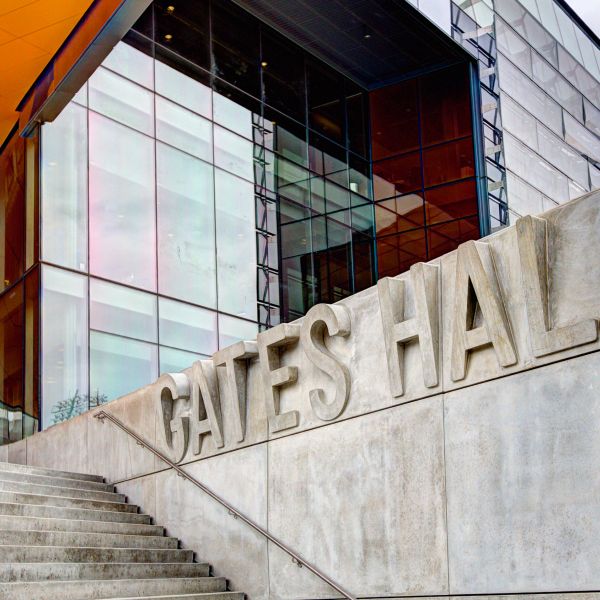Cornell Computing and Information Science has announced the hiring of 10 new faculty members to join the Ithaca and Cornell Tech campuses. The new hires include two senior faculty members who are outstanding scholars in their respective fields, as well as eight junior faculty members who were selected for their exceptional potential. CIS is also expanding its focus and leadership in the field of tech policy with four new hires in the field, as well as expanding its faculty in the fields of distributed systems, AI, human computer interaction and statistical methods for big data. “Our new faculty will infuse CIS with more excitement, greater research potential, and help with ever-increasing enrollments,” said CIS Dean Greg Morrisett. Hired in 2015-16 but joining CIS for the first time this fall are Assistant Professor Adrian Sampson in Computer Science and Assistant Professor Karen Levy in Information Science.
Computer Science Department:
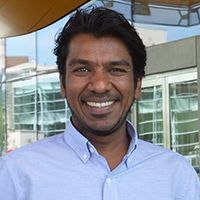 Rachit Agarwal will join Cornell Computer Science as an Assistant Professor after completing postdoctoral work at UC Berkeley, where he led the Succinct project. He completed his PhD at the University of Illinois – Urbana Champaign (UIUC) and was awarded the 2012 UIUC Rambus research award for outstanding performance in computer science and engineering research. He recently gave an invited talk at a workshop for distributed computing at the ACM Principles Of Distributed Computing 2016.
Rachit Agarwal will join Cornell Computer Science as an Assistant Professor after completing postdoctoral work at UC Berkeley, where he led the Succinct project. He completed his PhD at the University of Illinois – Urbana Champaign (UIUC) and was awarded the 2012 UIUC Rambus research award for outstanding performance in computer science and engineering research. He recently gave an invited talk at a workshop for distributed computing at the ACM Principles Of Distributed Computing 2016.
 Lorenzo Alvisi, MS'94, PhD'96, is returning to Cornell this fall as a Professor of Computer Science. Most recently an endowed professor of Computer Science at the University of Texas-Austin, where he was the co-director of the Laboratory for Advanced System Research, Alvisi teaches theory and practice of dependable distributed computing. In 2016 he was named an IEEE Fellow and inducted in the UT Austin Academy of Distinguished Teachers. He is an ACM and Sloan Fellow and a Humbolt Award recipient.
Lorenzo Alvisi, MS'94, PhD'96, is returning to Cornell this fall as a Professor of Computer Science. Most recently an endowed professor of Computer Science at the University of Texas-Austin, where he was the co-director of the Laboratory for Advanced System Research, Alvisi teaches theory and practice of dependable distributed computing. In 2016 he was named an IEEE Fellow and inducted in the UT Austin Academy of Distinguished Teachers. He is an ACM and Sloan Fellow and a Humbolt Award recipient.
 Ron Brachman is the incoming Director of the Jacobs Technion-Cornell Institute and a Cornell Professor of Computer Science. His research specialization is artificial intelligence with a focus on knowledge representation and reasoning, on which he has authored dozens of cited research papers, created the new field of description logics and co-authored a leading textbook. He comes to Cornell Tech from leading research labs like Bell Labs and Yahoo and was also Director of the Information Processing Technology Office at DARPA.
Ron Brachman is the incoming Director of the Jacobs Technion-Cornell Institute and a Cornell Professor of Computer Science. His research specialization is artificial intelligence with a focus on knowledge representation and reasoning, on which he has authored dozens of cited research papers, created the new field of description logics and co-authored a leading textbook. He comes to Cornell Tech from leading research labs like Bell Labs and Yahoo and was also Director of the Information Processing Technology Office at DARPA.
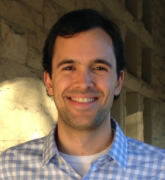 Anil Damle will join Cornell in July 2017 as an Assistant Professor. He recently received his PhD from the Institute for Computational and Mathematical Engineering at Stanford University and is currently a NSF Postdoctoral Fellow at UC Berkeley. His research broadly focuses on developing fast algorithms for structured physical and statistical models. Currently this includes work on localization of Kohn-Sham orbitals, robust algorithms for spectral clustering, and rank-structured matrix algorithms. Anil was awarded a Gerald J. Lieberman Fellowship while at Stanford University.
Anil Damle will join Cornell in July 2017 as an Assistant Professor. He recently received his PhD from the Institute for Computational and Mathematical Engineering at Stanford University and is currently a NSF Postdoctoral Fellow at UC Berkeley. His research broadly focuses on developing fast algorithms for structured physical and statistical models. Currently this includes work on localization of Kohn-Sham orbitals, robust algorithms for spectral clustering, and rank-structured matrix algorithms. Anil was awarded a Gerald J. Lieberman Fellowship while at Stanford University.
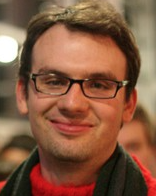 Noah Snavely has relocated from the Cornell campus to Cornell Tech as an Associate Professor of Computer Science. He works in computer vision and graphics, in particular in reconstructing and visualizing 3D structure and statistical information from massive sets of online photos. He is the recipient of a Microsoft New Faculty Fellowship, a SIGGRAPH Significant New Researcher Award, and a Presidential Early Career Award for Scientists and Engineers. He received his PhD from the University of Washington and has spent the past few years on leave from Cornell working on maps and virtual reality at Google.
Noah Snavely has relocated from the Cornell campus to Cornell Tech as an Associate Professor of Computer Science. He works in computer vision and graphics, in particular in reconstructing and visualizing 3D structure and statistical information from massive sets of online photos. He is the recipient of a Microsoft New Faculty Fellowship, a SIGGRAPH Significant New Researcher Award, and a Presidential Early Career Award for Scientists and Engineers. He received his PhD from the University of Washington and has spent the past few years on leave from Cornell working on maps and virtual reality at Google.
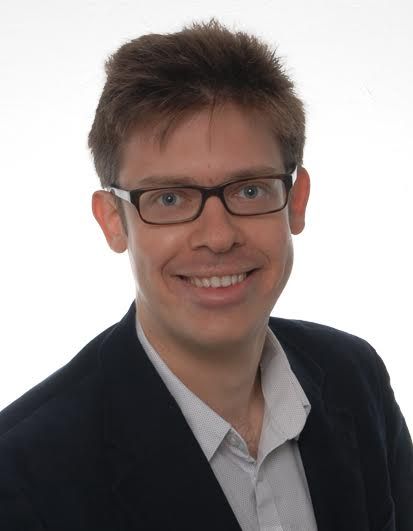 Immanuel Trummer has accepted a position as Assistant Professor. Recently finalizing his PhD at EPFL, his research focuses on optimization problems that arise in the context of data analysis and data management. He is also interested in large-scale text mining and machine learning. His publications were selected for the Best of VLDB Journal, for the ACM SIGMOD Research Highlight Award, and for publication in CACM Research Highlights. He is the recipient of the Google European PhD Fellowship 2015 in structured data analysis and alumnus of the German National Academic Foundation.
Immanuel Trummer has accepted a position as Assistant Professor. Recently finalizing his PhD at EPFL, his research focuses on optimization problems that arise in the context of data analysis and data management. He is also interested in large-scale text mining and machine learning. His publications were selected for the Best of VLDB Journal, for the ACM SIGMOD Research Highlight Award, and for publication in CACM Research Highlights. He is the recipient of the Google European PhD Fellowship 2015 in structured data analysis and alumnus of the German National Academic Foundation.
Department of Information Science:
 Solon Barocas will join Information Science as an Assistant Professor in July 2017. Currently a postdoc researcher at the New York City Lab of Microsoft Research, he focuses on the ethics of machine learning and accountability in automated decision-making. He received his PhD from New York University, where he remains a visiting scholar at the Center for Urban Science and Progress and an affiliate of the Information Law Institute. He received his master’s from the London School of Economics and Political Science.
Solon Barocas will join Information Science as an Assistant Professor in July 2017. Currently a postdoc researcher at the New York City Lab of Microsoft Research, he focuses on the ethics of machine learning and accountability in automated decision-making. He received his PhD from New York University, where he remains a visiting scholar at the Center for Urban Science and Progress and an affiliate of the Information Law Institute. He received his master’s from the London School of Economics and Political Science.
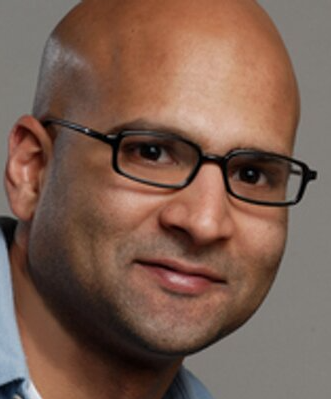 Tapan Parikh comes to Cornell Tech this fall from UC-Berkeley. Hired as an Associate Professor, Parikh’s research interests include human-computer interaction, mobile computing, and information technologies for education, governance and international development. He has received the NSF Career Award, a Sloan Fellowship, and was named TR35 Humanitarian of the Year. Parikh completed his master’s and PhD degrees from the University of Washington.
Tapan Parikh comes to Cornell Tech this fall from UC-Berkeley. Hired as an Associate Professor, Parikh’s research interests include human-computer interaction, mobile computing, and information technologies for education, governance and international development. He has received the NSF Career Award, a Sloan Fellowship, and was named TR35 Humanitarian of the Year. Parikh completed his master’s and PhD degrees from the University of Washington.
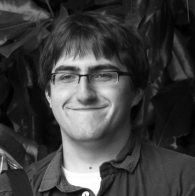 Jeff Rzeszotarski will join Information Science in July 2017 as an Assistant Professor after completing his PhD in the Human-Computer Interaction Institute at Carnegie Mellon University. His research melds computer science, social psychology and cognitive science in order to improve the ways people generate content online. Rzeszotarski received a Carnegie Mellon Student Innovation fellowship and a Microsoft Research PhD fellowship.
Jeff Rzeszotarski will join Information Science in July 2017 as an Assistant Professor after completing his PhD in the Human-Computer Interaction Institute at Carnegie Mellon University. His research melds computer science, social psychology and cognitive science in order to improve the ways people generate content online. Rzeszotarski received a Carnegie Mellon Student Innovation fellowship and a Microsoft Research PhD fellowship.
Department of Statistical Science:
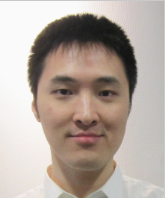 Yang Ning comes to Cornell as an Assistant Professor in Statistics after completing a postdoc fellowship at Princeton University, where he developed statistical methods and theory for analyzing big and complex data. He has been awarded the David Byar Young Investigator Award and has his papers published in Biometrika and the Journal of the Royal Statistical Society.
Yang Ning comes to Cornell as an Assistant Professor in Statistics after completing a postdoc fellowship at Princeton University, where he developed statistical methods and theory for analyzing big and complex data. He has been awarded the David Byar Young Investigator Award and has his papers published in Biometrika and the Journal of the Royal Statistical Society.



